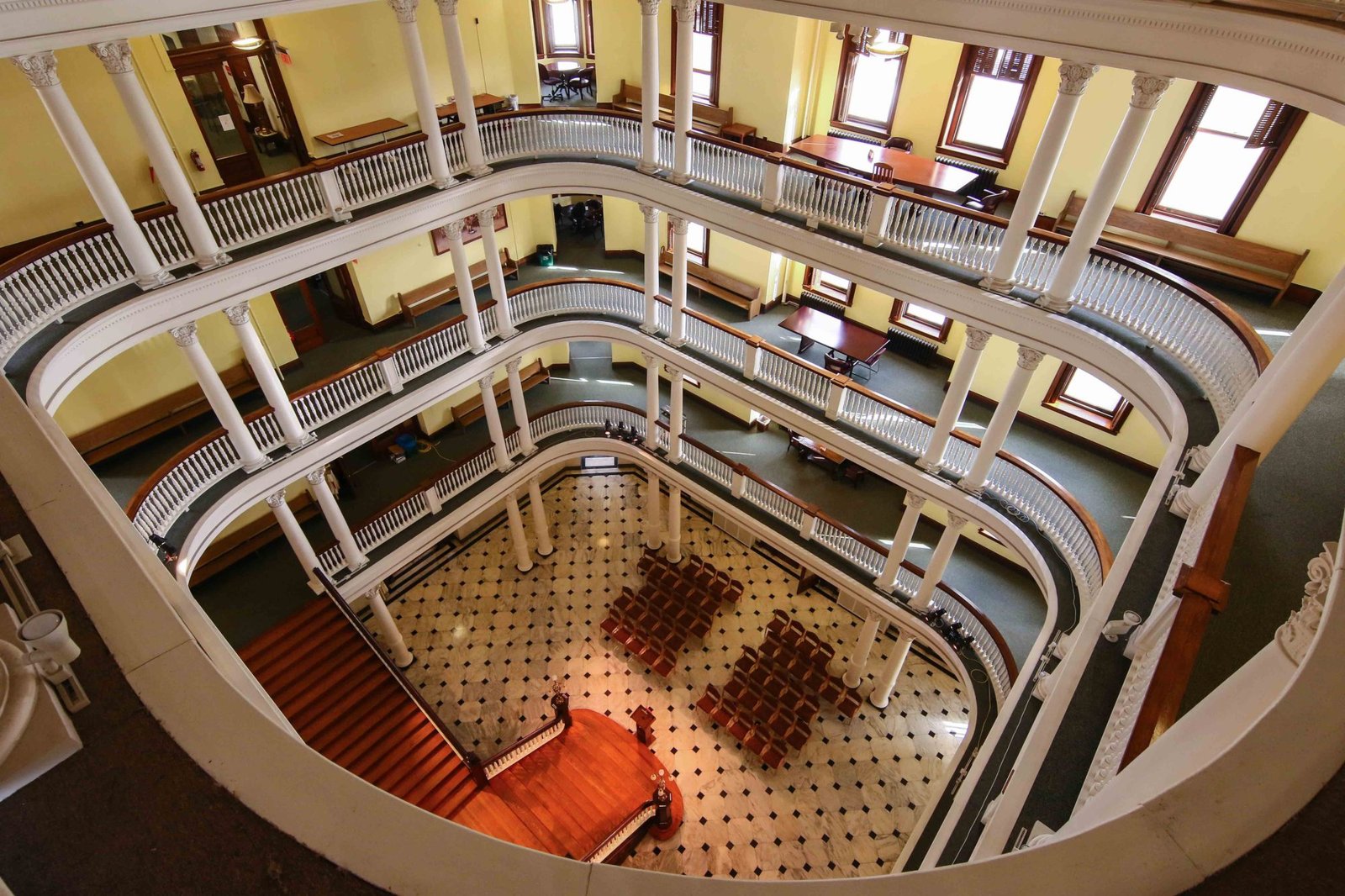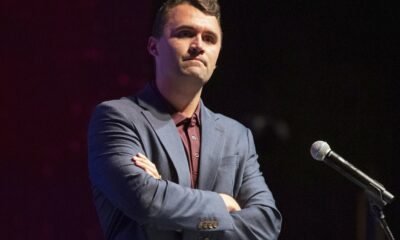Education
Let’s reshape the liberal arts with a focus on applied learning, internships and training for jobs of the future and let faculty lead the way

Today’s colleges face an uncertain future and need to be more relevant and more connected to the world of work to thrive.
The liberal arts, which have evolved throughout history to meet the needs of society and the state of knowledge, were created for the industrial era. They are badly dated and must be rethought to prepare students for the global, digital, knowledge economy in which they will live their lives.
Vocational education prepares people for their next job. But liberal arts education is designed to do more — to “future-proof” students. By helping students learn to solve problems and think critically, the liberal arts prepare students not for their next job but for jobs that don’t exist. And with the world changing rapidly, with new technologies replacing many jobs and employers demanding proof of skills, the liberal arts need to be future-proofed themselves.
Related: Interested in innovations in higher education? Subscribe to our free biweekly higher education newsletter.
The liberal arts are most successful when they have one foot in the library (the accumulated knowledge of humanity) and one foot in the street (the real world of the marketplace, politics and social interaction), to paraphrase the social reformer Jane Addams.
These are times of rapid change. We are simultaneously experiencing demographic, economic, technological and global changes, and colleges and universities cannot afford to lose traction with the street.
The historian Henry Adams attended Harvard in the mid-19th century and lamented that he received an 18th-century education in Cambridge — and would then live his life in a world plunging into the 20th century. Our colleges and the liberal arts face a similar challenge today.
But these challenges are not insurmountable. Colleges and universities can regain their connection with the street by taking several important steps:
- Introduce a new competency-based core curriculum that provides students with the skills, knowledge and values to thrive in a global, digital, knowledge economy.
- Ensure that all students receive four years of career counseling, beginning with orientation, and participate in some form of internship or apprenticeship. Each student can be assigned an academic adviser (a faculty member) and a career adviser (a career counselor, alumnus or an accomplished professional in the student’s intended career field). Internships and apprenticeships might include research opportunities, community development placements, humanities apprenticeships or other practice-based experiences. Even before students arrive on campus, the university will help them explore their career interests and begin to match them with business, cultural, artistic and scientific opportunities in the area, or with alums or partners of the college.
- Establish a competency transcript to demonstrate career readiness. Students should graduate with both an academic transcript and a second transcript that verifies specific skills and competencies gained through coursework and experiential learning. The second transcript will include microcredentials certifying proficiency in highly sought skills, aligning academic education and career readiness.
- Combine professional schools with undergraduate learning to give professional schools a stronger foundation in the fields that fuel them and to expand the liberal arts to include the practical applications they foster. This reorganization will integrate the liberal arts and professional education, providing an opportunity to fundamentally rethink programs, departments and majors, including interdisciplinary and “blended” options to foster collaboration and provide both breadth and depth.
- Establish a research center for applied liberal arts that will serve as the engine driving the plan, fueling future innovation and developing new designs for courses, programs, experiential learning and teaching methods while introducing new approaches using artificial intelligence and virtual reality.
- Let the faculty lead. The best way to accomplish these goals is to bring the faculty together and give them room to reinvent the institution. They have been waiting to innovate and share their insights on what works in classrooms and what students need.
Related: OPINION: Meet certificates and “microcredentials” — they could be the future of higher education
We have the capacity to avoid Henry Adams’ fate. But we need to act now, not by rejecting the liberal arts, but by embracing them and reshaping them. We need them in this time of dramatic change and social transformation more than ever before.
By reconnecting the library with the street, we can make all students — and our learning programs — future-proof.
Arthur Levine is president of Brandeis University and, most recently, the co-author, with Scott Van Pelt, of the bestselling higher education book “The Great Upheaval: Higher Education’s Past, Present, and Uncertain Future.” His new book (also with Scott Van Pelt) is “From Upheaval to Action: What Works in Changing Higher Ed” and will be published on March 3, 2026, by Johns Hopkins University Press.
Contact the opinion editor at opinion@hechingerreport.org.
This story about liberal arts education was produced by The Hechinger Report, a nonprofit, independent news organization focused on inequality and innovation in education. Sign up for Hechinger’s weekly newsletter.
Education
Best UK universities for electrical & electronic engineering – league table

Engineering of electrical and electronic systems, microelectronics, silicon devices and nanotechnology
Education
Best UK universities for economics – league table

The study of what influences income, wealth and wellbeing, and how this can be implemented into policy
Education
Universities around the world cut ties with Israeli academia over Gaza war | Israel

A growing number of universities, academic institutions and scholarly bodies around the world are cutting links with Israeli academia amid claims that it is complicit in the Israeli government’s actions towards Palestinians.
According to Gaza’s health ministry, more than 63,000 people have been killed in the territory – the majority of them civilians – with the true toll likely far higher. UN-backed experts have confirmed parts of Gaza, much of which has been reduced to rubble, are now in a “man-made” famine.
In response, a growing number of academic bodies are now distancing themselves from Israeli institutions. Last year the Federal University of Ceará in Brazil cancelled an innovation summit with an Israeli university, while a host of universities across Norway, Belgium and Spain have cut ties with Israeli institutions. Others, including Trinity College Dublin, followed suit this summer.
The University of Amsterdam has ended a student exchange programme with the Hebrew University of Jerusalem, and the European Association of Social Anthropologists has declared it will not collaborate with Israeli academic institutions and has encouraged its members to follow suit.
While not all those taking action support a general academic boycott, the movement reflects concerns over links within Israel between academia, the military and the government.
Stephanie Adam of the Palestinian Campaign for the Academic and Cultural Boycott of Israel said Israeli academic institutions are complicit in “Israel’s decades-long regime of military occupation, settler colonial apartheid and now genocide”, adding there is “a moral and legal obligation for universities to end ties with complicit Israeli universities”.
However, few institutions in the UK, France and Germany have announced they are cutting links Israeli academia, with Universities UK (UUK) saying it does not support an academic boycott.
“As a representative body, Universities UK has a longstanding public position of being committed to the free exchange of ideas, regardless of nationality or location. As such we do not endorse blanket academic boycotts, as this would represent an infringement of academic freedom,” a UUK spokesperson said. Likewise, the Royal Society has stated that it opposes academic boycotts.
The Nobel laureate and former president of the Royal Society Venki Ramakrishnan told the Guardian he has mixed feelings about boycotts.
“On the one hand, the Israeli government’s approach to Gaza has been hugely disproportionate, harming civilians, including young children, in the thousands,” he said.
“On the other hand, most Israeli academics I know, including several I count as my friends, detest Netanyahu and his government. A boycott of this would penalise those who are not responsible for the actions of the Israeli government, and who in fact are very sympathetic to the plight of Palestinians.”
The Israeli historian and political scientist Ilan Pappé disputed that many academics are sympathetic to the plight of the Palestinians. “If it were so, I would have seen them among the few hundreds [of] brave Israelis who demonstrate against the war because it is a genocide, not because it fails to bring back the hostages (demonstrations that [are] regarded [as] illegal in Israel),” he said, adding that the vast majority of Israeli academics do not refuse to serve in the country’s army.
“They provide courses and degrees to the secret service, police and are agencies of the government that are oppressing daily the Palestinians,” he said.
On the academic boycott, Pappé said: “[It] is a very harsh and tough, albeit necessary, conversation with the Israeli academic institutions, illuminating for them their responsibility and for being an organic part of an oppressive system. A reality that has been going on for 77 years and the Israeli academia is now told that there is price tag attached to such a conduct.”
Ghassan Soleiman Abu-Sittah, a British-Palestinian surgeon and rector of the University of Glasgow, said that students and academics across the UK have pushed for academic boycotts of Israel, but are being blocked by the governing bodies of universities.
As a result, he said, researchers are taking unofficial action.
“The moral outrage about what the Israelis are doing is leading more and more academics to take personal decisions, not to have joint projects with Israelis,” he said.
Whether the severing of academic ties has had any impact on researchers in Israel, or the Netanyahu government, is a matter of debate, with some sources within Israeli academia stating it is not affecting their research or links with longstanding collaborators.
However, that could change should the movement continue to spread, with experts noting the importance of collaborations between Israeli institutions and both Ivy League and western European universities.
What’s more, blocks on research funding could be very problematic, both for Israeli universities and the country as a whole, given the Israeli economy is heavily based on science and technology.
Such fears are very real: since 2021 Israel has received a net sum of €875.9m (£740.4m) from the EU’s Horizon Europe programme for scientific research. However, in July the European Commission proposed partially suspending Israel from Horizon Europe.
“The proposal will affect Israeli entities participating in the EIC Accelerator, targeting startups and SMEs [small and medium enterprises] with disruptive innovations and emerging technologies that have a potential dual use, for example in cybersecurity, drones, and artificial intelligence,” said the EU Commission spokesperson Thomas Regnier.
At present, the suspension looks unlikely, with 10 member states arguing it is better to keep a dialogue open with Israel. But concerns remain that Israel could be blocked from the successor to Horizon Europe, which is set to begin in 2028.
Adam said there are signs academic actions are cutting through, noting in May 2024 the Israeli government allocated €22m (£19m) specifically to combat the Palestinian-led academic boycott, while Israel’s share of EU research funding has fallen.
Last Thursday it was revealed that of the 478 early-career researchers selected by the European Research Council to receive its 2025 starting grants as part of the Horizon Europe programme, just 10 are in Israel, compared with 30 of 494 grantees the year before.
Should the money stop flowing and prestigious collaborations dry up, there is also concern that researchers will leave Israel, potentially never to return, fuelling a “brain drain” that is already a concern in medicine.
While Israeli researchers told the Guardian academia is the wrong target for boycotts, and some experts say on its own an academic boycott will not be effective, others maintain the approach is a powerful tool.
“The threat of academic boycott is sufficient to push the Israeli government into ending this genocide,” said Abu-Sittah.
-

 Business2 weeks ago
Business2 weeks agoThe Guardian view on Trump and the Fed: independence is no substitute for accountability | Editorial
-
Tools & Platforms1 month ago
Building Trust in Military AI Starts with Opening the Black Box – War on the Rocks
-

 Ethics & Policy2 months ago
Ethics & Policy2 months agoSDAIA Supports Saudi Arabia’s Leadership in Shaping Global AI Ethics, Policy, and Research – وكالة الأنباء السعودية
-

 Events & Conferences4 months ago
Events & Conferences4 months agoJourney to 1000 models: Scaling Instagram’s recommendation system
-

 Jobs & Careers2 months ago
Jobs & Careers2 months agoMumbai-based Perplexity Alternative Has 60k+ Users Without Funding
-

 Podcasts & Talks2 months ago
Podcasts & Talks2 months agoHappy 4th of July! 🎆 Made with Veo 3 in Gemini
-

 Education2 months ago
Education2 months agoMacron says UK and France have duty to tackle illegal migration ‘with humanity, solidarity and firmness’ – UK politics live | Politics
-

 Education2 months ago
Education2 months agoVEX Robotics launches AI-powered classroom robotics system
-

 Podcasts & Talks2 months ago
Podcasts & Talks2 months agoOpenAI 🤝 @teamganassi
-

 Funding & Business2 months ago
Funding & Business2 months agoKayak and Expedia race to build AI travel agents that turn social posts into itineraries





















